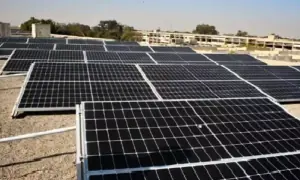Oil steady as demand concerns rise, Libya output looms
LONDON (Reuters) - Oil prices slipped slightly on Monday amid concerns about a stalled global economic recovery and with Libya poised to resume production, but were supported by an impending storm which has disrupted U.S. oil output.
Brent crude LCOc1 was down 12 cents, or 0.3%, at $39.71 a barrel while U.S. West Texas Intermediate (WTI) crude futures CLc1 were down 8 cents, or 0.20%, at $37.25 a barrel by 1400 GMT.
Both contracts ended last week lower, falling for a second week in a row.
“(Coronavirus) infection rates are on the rise again, there are localized lockdowns introduced in a growing number of countries hindering regional economic growth and the number of unemployed is failing to fall significantly,” oil broker PVM’s Tamas Varga said.
“This leads to dismal oil demand growth.”
OPEC said on Monday that world oil demand would tumble by 9.46 million barrels per day (bpd) this year, a sharper decline than it predicted in a report a month ago.
In Libya, commander Khalifa Haftar committed to ending a months-long blockade of oil facilities, a move that would add more supplies to the market.
“If Libya’s production comes back online soon, we are talking about 1 million barrels per day or more, this will be a significant addition to the global balances. And the market is pricing this in today,” said Bjornar Tonhaugen, head of oil markets at Rystad Energy.
The Organization of the Petroleum Exporting Countries and allies, a grouping known as OPEC+, meets on Sept. 17 to discuss compliance with deep cuts in production, although analysts don’t expect further reductions to be made.
Tropical Storm Sally gained in strength in the Gulf of Mexico west of Florida on Sunday and was poised to become a category 2 hurricane. The storm is disrupting oil production for the second time in less than a month after hurricane Laura swept through the region.
Typically oil prices rise when production is shut down, but with the coronavirus pandemic getting worse demand concerns are to the fore, while global supplies continue to rise.














Comments are closed on this story.